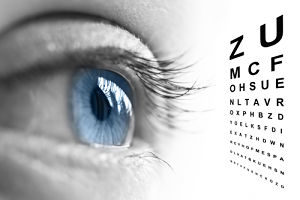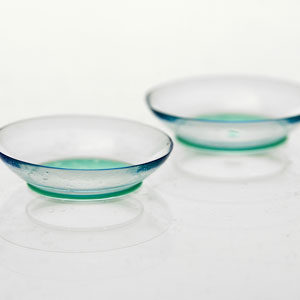Eye Exams
Eye Exams in Hinsdale, Illinois
 What is included in a Comprehensive Eye Exam?
What is included in a Comprehensive Eye Exam?Comprehensive eye examinations are an important part of preventive health care. Many eye and vision problems have no signs or symptoms, so you might not know a problem exists. Early diagnosis and treatment of eye and vision problems can help prevent vision loss.
A comprehensive eye exam is a 75-90 minute exam which may include, but is not limited to, the following tests:
- Patient History
The doctor or technician will discuss any eye or vision problems you are currently having or have previously experienced. Discussion about your overall medical health, family history, allergies and current medications will be recorded. - Visual Acuity Tests
Usually performed using a projected eye chart to measure your distance visual acuity and a small, hand-held acuity chart to measure your near vision. - Preliminary Testing
Preliminary tests can include evaluations of depth perception, color vision, eye muscle movements, peripheral or side vision, and the way your pupils respond to light. - Refraction
A “refraction” is the process of determining the optimal eyeglass prescription for your eyes. This is not only to allow us to prescribe eyeglasses, but more importantly to determine your best corrected vision. The refraction helps us to distinguish whether vision problems are caused by glasses or from eye disease. - Glaucoma Testing
Testing for glaucoma typically begins with measuring the pressure inside your eyes. For this test, your eye doctor will put yellow eye drops in your eye to numb it. Your eyes will feel slightly heavy when the drops start working. This is not a dilating drop — it is a numbing agent combined with a yellow dye that glows under a blue light. At most, you may feel the tonometer probe tickle your eyelashes. The whole test takes just a few seconds and is painless. - Pupil Dilation
To obtain a better view of the eye’s internal structures, the technician or doctor instills dilating drops to enlarge your pupils. Dilating drops usually take about 30 minutes to start working. When your pupils are dilated, you will be sensitive to light (because more light is getting into your eye) and you may notice difficulty focusing on objects up close. These effects can last for up to several hours in adults and up to 12 hours in children, depending on the strength of the drop used. - Eye Health Evaluation
Your physician will evaluate the health of your eyes using several different methods. They use a Slit Lamp (biomicroscope), which magnifies and lights up the front of your eye to detect several eye diseases and disorders by examining your cornea, iris, lens, and anterior chamber. And for the back of the eye, or Retinal exam, your doctor will use an ophthalmoscope and pupil dilation, to determine the health of your retina, retinal blood vessels, vitreous, and optic nerve head.




